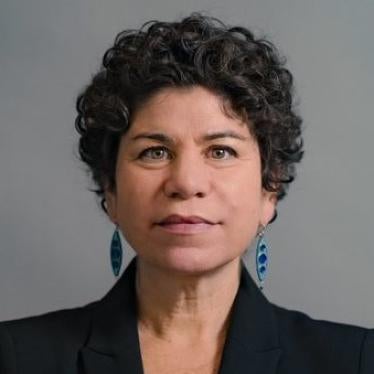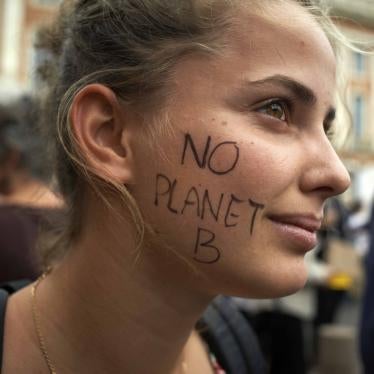On July 28, the Democratic Republic of Congo government began an auction for licensing rights to 27 oil and three methane gas blocks. It was the same day the United Nations recognized the human right to a clean, healthy, and sustainable environment.
Environment ministers from around the world will meet on October 3 in Kinshasa, to prepare for the annual summit, COP27, that reunites signatories to the Paris Agreement on climate change. The meeting takes place against the backdrop of Congolese President Félix Tshisekedi’s recent decision to open 11 million hectares of Congo’s forests—the world’s second largest rainforest—to drilling.
Tshisekedi told the United Nations General Assembly on September 20 that the auction has caused “unnecessary controversy.” He contended that a country in desperate need of development should not be prevented from exploiting its natural resources.
Congolese authorities rightly attest to the hypocrisy of Western governments that are most responsible for the climate crisis while failing to adequately support developing countries to face this crisis. But the undeniable failures of these countries do not alleviate the Congolese government’s responsibility for the predictable human rights toll posed to Congolese communities pushed onto the front line of oil operations.
The auction opens to fossil fuel production vast new sensitive inland areas home to rural communities, including Indigenous peoples.
An Indigenous leader, speaking on condition of anonymity, told Human Rights Watch that “if multinationals respond to this auction, it could have adverse impacts on Indigenous peoples' way of life, on our ancestral territories and on the biodiversity contained in these lands.”
Some of the proposed oil blocks directly encroach upon protected areas, including Virunga and Upemba National Parks, and the world’s largest tropical peatland, where drilling could release up to six billion tons of carbon, equal to more than 14 percent of the world's total greenhouse gas emissions in 2021.
“The negative impacts on our lands are inevitable once oil is exploited here,” Kahambu Kalere, a resident of Kanyabayonga told the Network for the Conservation of Forests, an alliance of local non-governmental organizations from North Kivu province. “We think this is not an opportunity but a threat.”
On September 23, Congolese climate activists organized a concert in Goma, and marches in Kinshasa and Bukavu. Justin Mutasheba, of the Association of Young Visionaries for the Development of Congo, called on the government to annul the auction. “It’s about stopping a climate catastrophe and to respect the rights of local communities who live in areas targeted for oil exploration,” he told Human Rights Watch.
Hydrocarbons Minister Didier Budimbu is busy promoting the auction and claims that “it will be an ecological exploitation, without any negative impact on the environment.” But “clean” oil operations cannot be guaranteed.
Oil production on Congo’s Atlantic coast is the source of persistent health and environmental harm. In 2013, a Congolese Senate commission accused the government of “irresponsibility” for failing to address the air, water, and land pollution from these operations. This April, nearly ten years later, an exhaustive study by the Congolese nongovernmental group Natural Resources and Development documented “leaks and spills of crude oil and mud as well as flaring of gases are the most visible forms of pollution” harming local communities.
Drilling in the rainforest brings other risks. Gaining access to remote areas requires clearing forest to build roads, expanding the zone of impact well beyond the specific auction blocks. In Ecuador, for example, much of the extensive deforestation in the Amazon followed oil access roads.
From seismic surveys to determine if and where oil is located to production and extraction, explosives, heavy machinery, invasive infrastructure, polluting operations, and construction of pipelines to transport oil out of the rainforest bring a host of damage even under the strictest of regulatory regimes. In some contexts, the presence of temporary oil workers has been a source of violence and atrocities, including rape and murder of women and girls.
In a country where dividends generated by natural resources wealth continue to benefit only a few rather than the broader development of the Congolese people, those challenging the value of an oil and gas tender must not be dismissed. The authorities in Kinshasa should consider their voices and uphold their obligations to protect the rights of rural and Indigenous communities and others who ultimately would bear the greatest toll.










